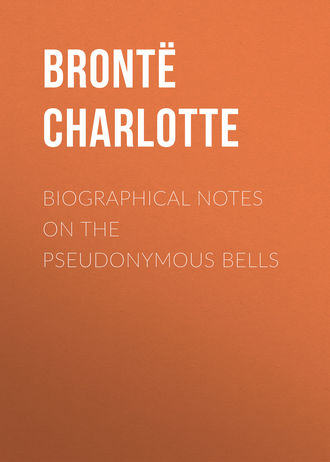
Шарлотта Бронте
Biographical Notes on the Pseudonymous Bells
Anne’s character was milder and more subdued; she wanted the power, the fire, the originality of her sister, but was well endowed with quiet virtues of her own. Long-suffering, self-denying, reflective, and intelligent, a constitutional reserve and taciturnity placed and kept her in the shade, and covered her mind, and especially her feelings, with a sort of nun-like veil, which was rarely lifted. Neither Emily nor Anne was learned; they had no thought of filling their pitchers at the well-spring of other minds; they always wrote from the impulse of nature, the dictates of intuition, and from such stores of observation as their limited experience had enabled them to amass. I may sum up all by saying, that for strangers they were nothing, for superficial observers less than nothing; but for those who had known them all their lives in the intimacy of close relationship, they were genuinely good and truly great.
This notice has been written because I felt it a sacred duty to wipe the dust off their gravestones, and leave their dear names free from soil.
CURRER BELL
September 19, 1850.
EDITOR’S PREFACE TO THE NEW EDITION OF ‘WUTHERING HEIGHTS’
I have just read over ‘Wuthering Heights,’ and, for the first time, have obtained a clear glimpse of what are termed (and, perhaps, really are) its faults; have gained a definite notion of how it appears to other people – to strangers who knew nothing of the author; who are unacquainted with the locality where the scenes of the story are laid; to whom the inhabitants, the customs, the natural characteristics of the outlying hills and hamlets in the West Riding of Yorkshire are things alien and unfamiliar.
To all such ‘Wuthering Heights’ must appear a rude and strange production. The wild moors of the North of England can for them have no interest: the language, the manners, the very dwellings and household customs of the scattered inhabitants of those districts must be to such readers in a great measure unintelligible, and – where intelligible – repulsive. Men and women who, perhaps, naturally very calm, and with feelings moderate in degree, and little marked in kind, have been trained from their cradle to observe the utmost evenness of manner and guardedness of language, will hardly know what to make of the rough, strong utterance, the harshly manifested passions, the unbridled aversions, and headlong partialities of unlettered moorland hinds and rugged moorland squires, who have grown up untaught and unchecked, except by Mentors as harsh as themselves. A large class of readers, likewise, will suffer greatly from the introduction into the pages of this work of words printed with all their letters, which it has become the custom to represent by the initial and final letter only – a blank line filling the interval. I may as well say at once that, for this circumstance, it is out of my power to apologise; deeming it, myself, a rational plan to write words at full length. The practice of hinting by single letters those expletives with which profane and violent persons are wont to garnish their discourse, strikes me as a proceeding which, however well meant, is weak and futile. I cannot tell what good it does – what feeling it spares – what horror it conceals.
With regard to the rusticity of ‘Wuthering heights,’ I admit the charge, for I feel the quality. It is rustic all through. It is moorish, and wild, and knotty as a root of heath. Nor was it natural that it should be otherwise; the author being herself a native and nursling of the moors. Doubtless, had her lot been cast in a town, her writings, if she had written at all, would have possessed another character. Even had chance or taste led her to choose a similar subject, she would have treated it otherwise. Had Ellis Bell been a lady or a gentleman accustomed to what is called ‘the world,’ her view of a remote and unreclaimed region, as well as of the dwellers therein, would have differed greatly from that actually taken by the home-bred country girl. Doubtless it would have been wider – more comprehensive: whether it would have been more original or more truthful is not so certain. As far as the scenery and locality are concerned, it could scarcely have been so sympathetic: Ellis Bell did not describe as one whose eye and taste alone found pleasure in the prospect; her native hills were far more to her than a spectacle; they were what she lived in, and by, as much as the wild birds, their tenants, or as the heather, their produce. Her descriptions, then, of natural scenery are what they should be, and all they should be.





